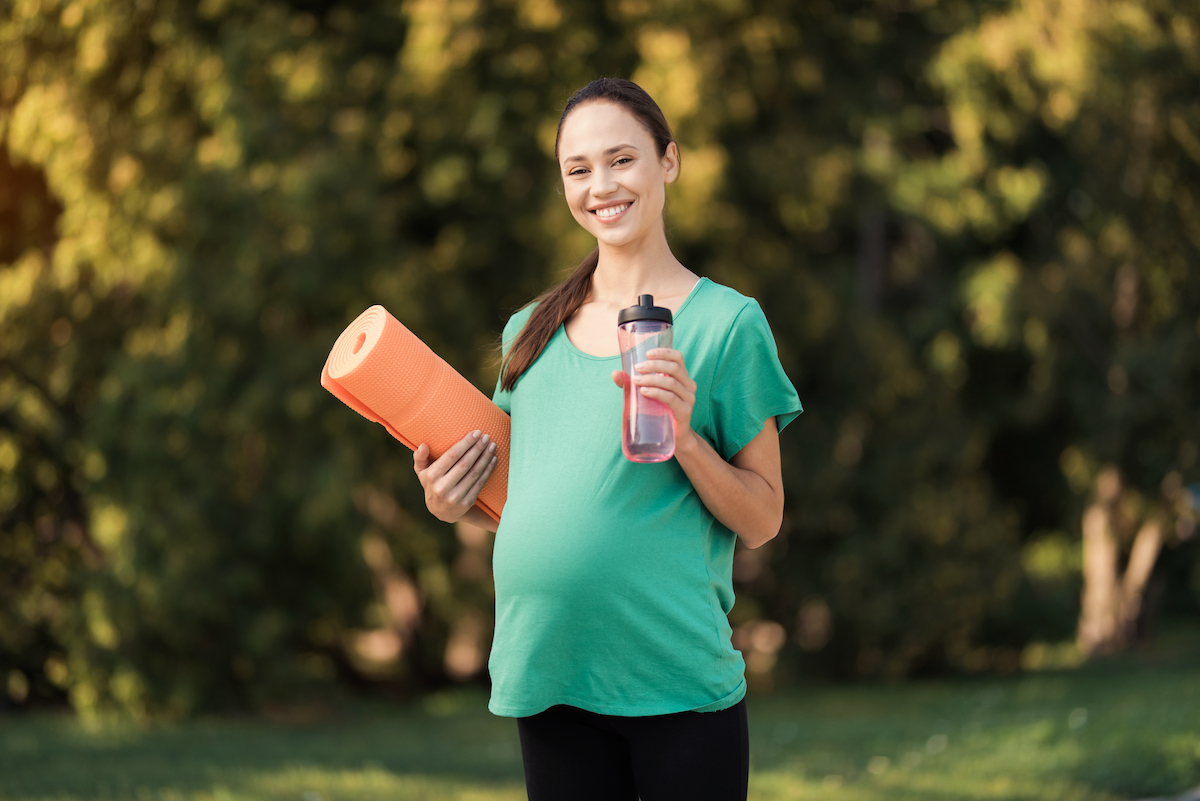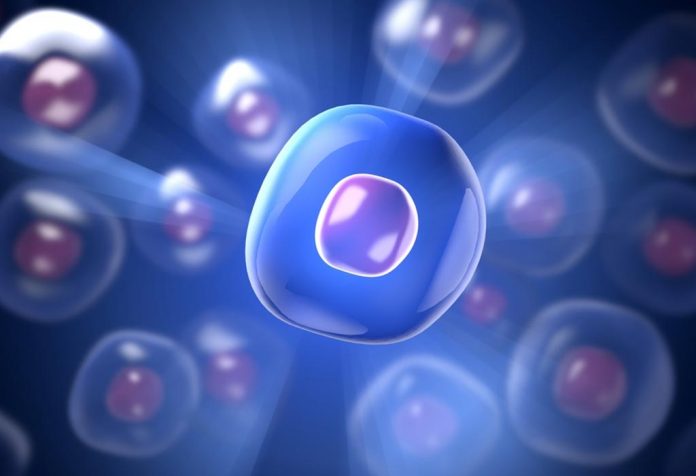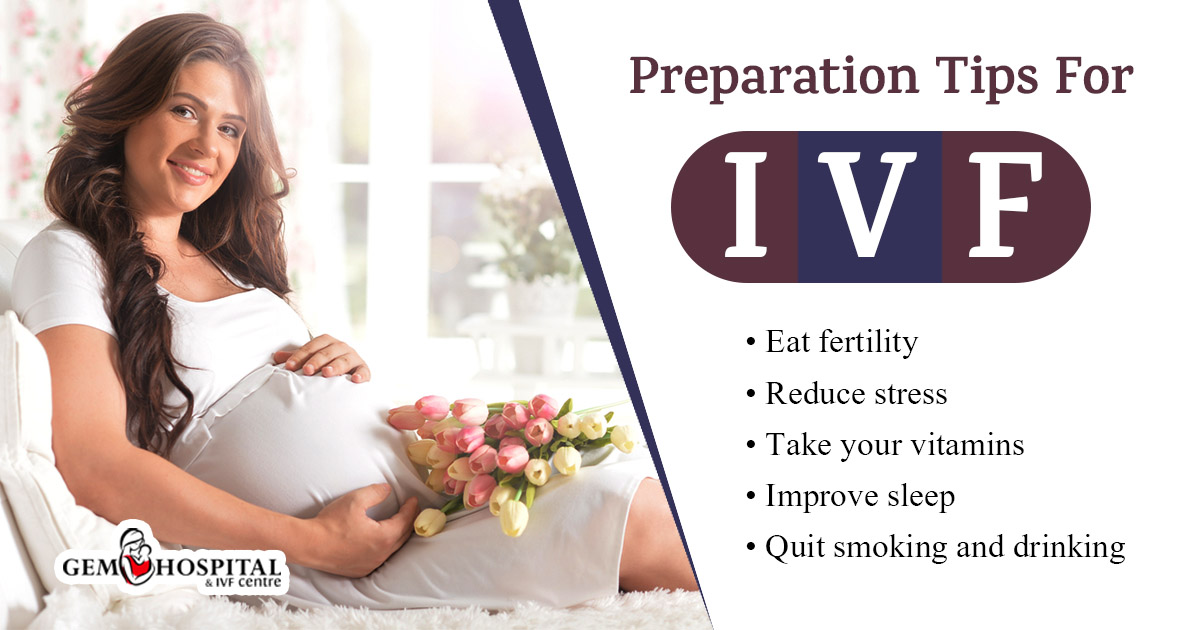IVF hopes that millions of couples around the world will be able to live in the joy of their parents. Infertility is not uncommon. One in ten couples are facing infertility problems.
IVF or in vitro fertilization is one of the most common assisted reproductive technology (ART) for couples who cannot naturally become pregnant. However, this process does not guarantee a successful result on the first attempt. The chance of getting pregnant is about 15-20%. The most important step to a successful IVF is to know the tips and habits that will increase your chances of success.

How to prepare for IVF treatment?
First. Do all sorts of research to find out about the IVF clinic or center where you will receive your treatment. There may be one treatment process. However, how treatment is provided makes a big difference. Be mentally prepared for a long-term relationship. IVF success cannot be guaranteed in one cycle. Couples often have to go through multiple cycles. Therefore, it is very important to find out the location of the clinic, the availability of doctors, the approach of staff to you, the skills of technicians, the condition of the lab where fertilization takes place, etc. Create a list. A clinic that offers IVF treatment and confirms details before settling down. In addition, you should check the following information about your clinic or center:
– Pregnancy rate per embryo transfer
– Clinic fertility rate
– Procedure costs
– Clinic certification
– Doctor’s experience certificate
– Number of twins or multiple births
- Avoid increased sperm count and masturbation
According to IVF experts, refraining from masturbation or sexual intercourse 3-4 days before the sperm donation or fertilization process increases the chances of successful IVF. During this time, the male partner should not ejaculate. Sperm quality changes over time. Therefore, it is important to analyze semen before the IVF process begins.
Important Lifestyle Tips for IVF Success:

For a woman who is undergoing or planning IVF, it is important to understand that every small and large habit plays a major role in her lifestyle. Everything from the diet she consumes to how to deal with her emotionally and mentally therapeutic journey influences her overall lifestyle habits.
- Good fat is a must
According to a study conducted by the Harvard School of Public Health, eating a diet rich in monounsaturated fats helps women seeking pregnancy through IVF achieve successful results. Monounsaturated fats are excellent fats that are known to protect the heart and improve fertility. Foods rich in monounsaturated fats include nuts, avocados, olive oil, and sunflower oil. These foods not only improve fertility, but also help the growth and development of the fetus. Adding good fat to your regular diet is the first tip to a successful IVF. Adding good fat does not guarantee 100% successful IVF, but it can definitely increase your chances.
Here’s how to renew your diet:
– Eat fresh fruits and vegetables
– Eat whole grains and lean protein
– Add legumes, beans, lentils, chickpeas
– Switch to low-fat dairy products
– Disable lean meats and processed foods
- Trust the goodness of meditation
IVF is a complex process. In most cases, repetitive cycles, efforts, and costs can hurt the lives of couples, especially women. However, in reality, stress can affect the reproductive system and further delay the chances of successful IVF. When you start in vitro fertilization treatment, it is normal for stress and anxiety to hurt your life. However, the way to deal with anxiety is stress relief. Meditation is the best way to relieve stress. Breathing meditation can reduce stress and improve body performance.
- Avoid alcohol, smoking and caffeine
Alcohol is a teratogenic substance, meaning that it can affect the normal functioning and formation of the fetus. Therefore, women who are trying to become pregnant at any cost should avoid alcohol. Smoking is another thing that can affect the success of IVF. Smoking affects the quality of eggs and sperm. Smoking can significantly reduce the chances of getting pregnant by in vitro fertilization Caffeine can adversely affect your baby’s health. Pregnant women or women preparing to carry a baby should not exceed 200 mg per day. Avoid coffee and soda. These are a rich source of caffeine. IVF experts suggest avoiding caffeine altogether once treatment begins.
- Maintain a healthy weight
Obesity is not good for fetal development. Body mass index (BMI) has a direct impact on your health. Being overweight or obese reduces the chances of successful in vitro fertilization. Similar harm can occur in underweight women. If you are at both ends of your weight range, make the necessary changes to achieve a healthy weight. Eat a healthy diet and incorporate aerobic exercise as a basic lifestyle habit.
- Avoid strenuous exercise
Maintaining a healthy weight is important for successful in vitro fertilization, but not through strenuous activity. Indulging in active activity can do more harm to your body than benefits and reduce your chances of successful conception. Avoid strenuous exercise after conception as it can cause implantation failure and miscarriage. If it is imperative to achieve a healthy weight, try to achieve it by doing low intensity exercises such as yoga, walking and swimming.
- Get enough sleep
Sleep is an important determinant of the success or failure of IVF treatment. Before you book in vitro fertilization, you need to adjust your sleep cycle. Go to bed early and get a good night’s sleep for 7-8 hours every day. More or less sleep can reduce the chances of successful IVF. Keep electronic devices away from your body while you sleep. A good night’s sleep in a dark environment is thought to regulate melatonin in the body, which can improve a woman’s mental and emotional well-being.
- Avoid harmful chemicals
Avoid chemicals that can interfere with the success of IVF.
– Manicure
– Cosmetics, soaps and shampoos containing parabens, triclosan and benzophenones
– Brominated flame retardants in furniture and electronic devices
- Take supplements
Once you start IVF treatment, there are some important supplements you can take.
Start with prenatal vitamins before starting the first cycle. Increase your intake of folic acid.
Prenatal vitamins can even help your partner improve their sperm health. Vitamin D deficiency can lead to problems with fetal health development. Therefore, taking vitamin D supplements is very important for the success of IVF.
These are basic lifestyle tips that can guarantee a healthy and successful IVF for any couple. If you have a health problem or are facing a problem, it is always best to notify and consult an IVF specialist immediately and without delay, rather than relying on lifestyle tips from your side.
Lifestyle Tips for IVF Success












